ICC convicts Congo’s former vice-president Bemba of war crimes
by Agency Staff,
2016-03-21 17:57:46.0
THE HAGUE — War crimes judges on Monday found former Congolese vice-president Jean-Pierre Bemba guilty of a deliberate campaign of widespread rapes and killings by his private army in Central African Republic (CAR) over a decade ago.
In a landmark verdict, the judges from the International Criminal Court (ICC) found Bemba guilty on five charges of war crimes and crimes against humanity, saying he had retained "effective command and control" over the forces sent in to CAR to quell an attempted coup against the then president.
It was the first case before the ICC to focus on sexual violence as a weapon of war, as well as to find a military commander to blame for the atrocities carried out by his forces even though he did not order them. The judges dismissed Bemba’s defence that his Congolese Liberation Movement (MLC) had come under the control of CAR’s hierarchy, saying he "had knowledge" of what was happening on the ground, and failed to stop it.
Once a feared rebel leader in the north of the Democratic Republic of Congo, Bemba "retained primary … authority over the MLC troops" in CAR, presiding judge Sylvia Steiner said.
MLC troops went into CAR in October 2002 to help put down an attempted coup against then president Ange-Felix Patasse. Over the next six months, some 1,500 of his troops went on a rampage of killings, rapes and pillage in villages in Congo’s northern neighbour.
The court found it was a deliberate campaign in which "the civilian population was the primary as opposed to the incidental target of attack".
Judge Steiner read out a horrific list of rapes against men, women and children by the MLC troops, many of whom were sexually assaulted multiple times, with family members forced to watch at gunpoint.
Bemba will be sentenced at a later date and could face up to 30 years in jail — or even a life sentence, if the court considers that it is "justified by the extreme gravity of the crime".
The trial chamber has also granted more than 5,000 victims the right to participate in the hearings — the highest number in any of the cases before the ICC.
With the pronouncement of the guilty verdict, the victims may have the right to claim damages.
Bemba’s defence team had insisted he had no control over his troops in CAR.
"There is not a single documentary piece of evidence that shows any orders passing from Bemba and going to his troops in the Central African Republic," defence lawyer Kate Gibson said in her closing argument in November 2014.
Numerous witnesses during the trial testified to a series of brutal murders and rapes by MLC soldiers, sent in to prop up Patasse against his arch-foe Francois Bozize.
Bozize eventually ousted Patasse and went on to rule Central African Republic for a decade, until he in turn was booted out in 2013, sparking further bloodshed.
After the events in CAR, Bemba, a wealthy businessman-turned-warlord, went on to become one of four vice-presidents in the transitional government of Congolese President Joseph Kabila.
In 2006, he lost to Mr Kabila in a presidential poll. He fled the next year into what he called "forced exile" in Europe after his troops were routed by government forces, and was arrested in Brussels in 2008 and handed over to the ICC.
Bemba and four close associates are also on trial in a second case in which they are accused of bribing witnesses in his main trial.
AFP
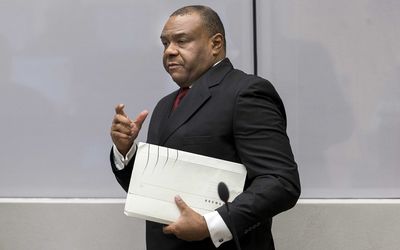
Former Congolese Vice-President Jean-Pierre Bemba arrives at the International Criminal Court at The Hague, The Netherlands, on Monday. Picture: EPA/JERRY LAMPEN
THE HAGUE — War crimes judges on Monday found former Congolese vice-president Jean-Pierre Bemba guilty of a deliberate campaign of widespread rapes and killings by his private army in Central African Republic (CAR) over a decade ago.
In a landmark verdict, the judges from the International Criminal Court (ICC) found Bemba guilty on five charges of war crimes and crimes against humanity, saying he had retained "effective command and control" over the forces sent in to CAR to quell an attempted coup against the then president.
It was the first case before the ICC to focus on sexual violence as a weapon of war, as well as to find a military commander to blame for the atrocities carried out by his forces even though he did not order them. The judges dismissed Bemba’s defence that his Congolese Liberation Movement (MLC) had come under the control of CAR’s hierarchy, saying he "had knowledge" of what was happening on the ground, and failed to stop it.
Once a feared rebel leader in the north of the Democratic Republic of Congo, Bemba "retained primary … authority over the MLC troops" in CAR, presiding judge Sylvia Steiner said.
MLC troops went into CAR in October 2002 to help put down an attempted coup against then president Ange-Felix Patasse. Over the next six months, some 1,500 of his troops went on a rampage of killings, rapes and pillage in villages in Congo’s northern neighbour.
The court found it was a deliberate campaign in which "the civilian population was the primary as opposed to the incidental target of attack".
Judge Steiner read out a horrific list of rapes against men, women and children by the MLC troops, many of whom were sexually assaulted multiple times, with family members forced to watch at gunpoint.
Bemba will be sentenced at a later date and could face up to 30 years in jail — or even a life sentence, if the court considers that it is "justified by the extreme gravity of the crime".
The trial chamber has also granted more than 5,000 victims the right to participate in the hearings — the highest number in any of the cases before the ICC.
With the pronouncement of the guilty verdict, the victims may have the right to claim damages.
Bemba’s defence team had insisted he had no control over his troops in CAR.
"There is not a single documentary piece of evidence that shows any orders passing from Bemba and going to his troops in the Central African Republic," defence lawyer Kate Gibson said in her closing argument in November 2014.
Numerous witnesses during the trial testified to a series of brutal murders and rapes by MLC soldiers, sent in to prop up Patasse against his arch-foe Francois Bozize.
Bozize eventually ousted Patasse and went on to rule Central African Republic for a decade, until he in turn was booted out in 2013, sparking further bloodshed.
After the events in CAR, Bemba, a wealthy businessman-turned-warlord, went on to become one of four vice-presidents in the transitional government of Congolese President Joseph Kabila.
In 2006, he lost to Mr Kabila in a presidential poll. He fled the next year into what he called "forced exile" in Europe after his troops were routed by government forces, and was arrested in Brussels in 2008 and handed over to the ICC.
Bemba and four close associates are also on trial in a second case in which they are accused of bribing witnesses in his main trial.
AFP


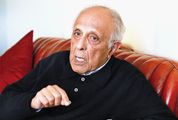
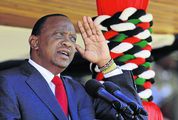

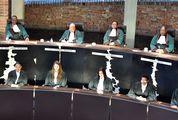


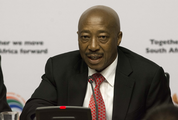











Change: -1.27%
Change: -1.42%
Change: -1.87%
Change: -1.08%
Change: -2.01%
Data supplied by Profile Data
Change: -0.47%
Change: 0.61%
Change: -1.27%
Change: 0.00%
Change: 0.63%
Data supplied by Profile Data
Change: -0.12%
Change: -1.22%
Change: -0.17%
Change: 0.54%
Change: 0.00%
Data supplied by Profile Data
Change: -0.84%
Change: -1.85%
Change: -2.59%
Change: 0.36%
Change: -2.35%
Data supplied by Profile Data